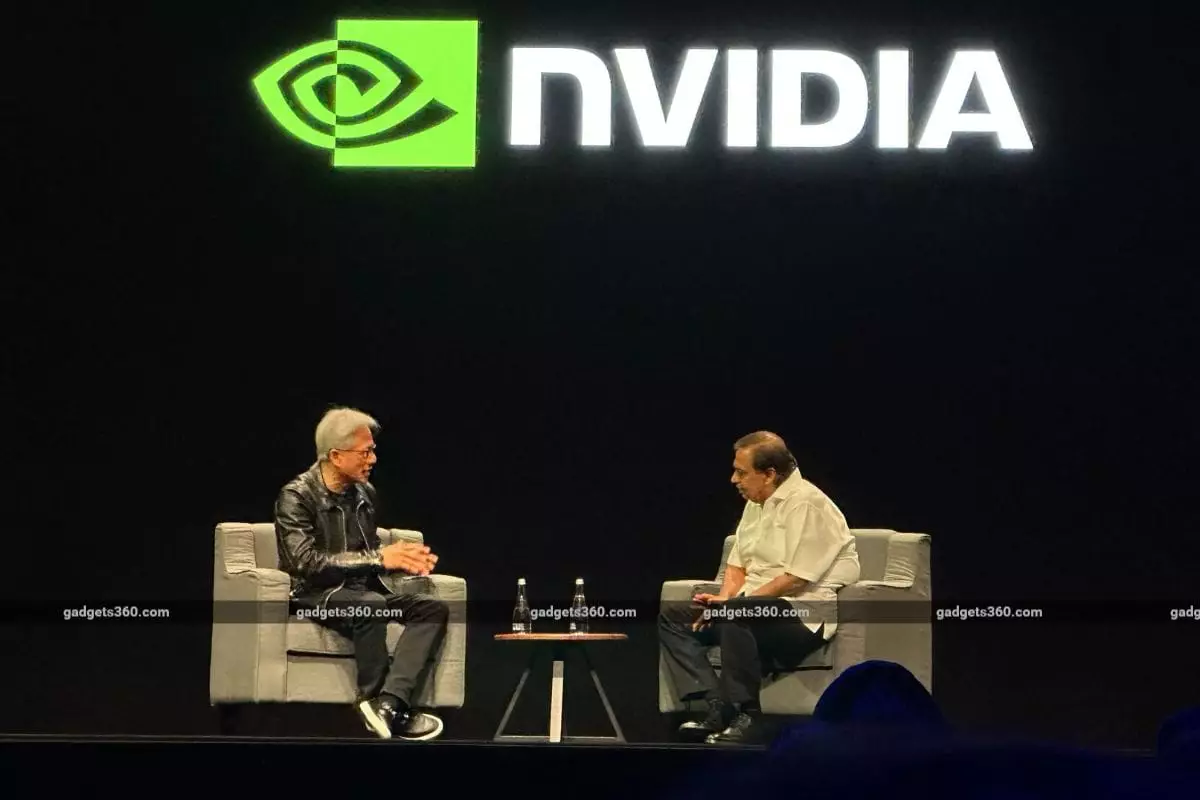In a recent statement, Jensen Huang, CEO of Nvidia, emphasized the necessity of continued global collaboration in technology, even in light of potential new U.S. administration restrictions on advanced computing exports. This comes on the heels of stringent measures introduced during President Trump’s tenure, which were largely sustained under President Biden, aimed at curtailing the proliferation of U.S. technologies to China for national security reasons. Huang asserted that despite these challenges, the legacy of open scientific inquiry will persist, owing to its fundamental role in social and technological evolution.
The global tech landscape continues to grapple with balancing compliance to governmental policies with the imperative of advancing innovative technologies. Huang’s perspective reflects a broader recognition of the interconnectedness inherent in today’s scientific community. He articulates that efforts supporting global progress are imperative, regardless of shifting political climates. His assertion is that technological innovation and collaboration can weather political storms, reinforcing the idea that knowledge transcends borders.
During his visit to Hong Kong, Huang resonated with the academic community by declaring that we are on the precipice of a new epoch: the age of artificial intelligence (AI). This transformative period, he noted, signifies the onset of a computing revolution that stands to disrupt every sector of industry and myriad fields of scientific inquiry. Receiving an honorary doctorate from the Hong Kong University of Science and Technology, alongside notable figures such as actor Tony Leung and Nobel laureate Prof. Michael Levitt, Huang marked this occasion by highlighting Nvidia’s pivotal role in this transition.
The importance of AI, according to Huang, cannot be overstated; he described it as possibly the most significant technology of our time. Reflecting on the company’s historical innovation—most notably the introduction of graphics processing units (GPUs)—he conveyed a sense of pride in Nvidia’s journey and its contributions to the tech industry. By asserting that AI is set to reshape the fabric of our lives, Huang inspires a generation of technologists and innovators to harness this force for broad societal benefits.
In his address to graduates, Huang expressed an almost nostalgic longing for the current era, stating that now is an unparalleled opportunity for young professionals entering the field. He emphasized that they are on a level playing field—ready to embark on journeys of discovery and innovation. The tools available today empower individuals to tackle previously insurmountable challenges and turn them into achievable goals.
As technological landscapes shift, Huang’s message resonates: this generation has unique instruments at their disposal to redefine science across multiple domains. The essence of his address is one of optimism, urging new talent to seize the moment and contribute positively to innovation and societal development. The dialogue surrounding technology, AI, and global cooperation is increasingly relevant, serving as both a challenge and an invitation to the next wave of thinkers and doers in the science and technology sectors.
As we navigate complex geopolitical settings, the principles of collaboration and innovation outlined by leaders like Jensen Huang will be crucial in shaping a future that embraces technological breakthroughs while honoring the ethos of shared progress.

Leave a Reply